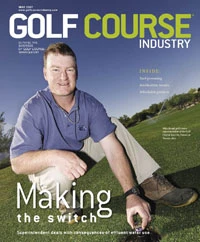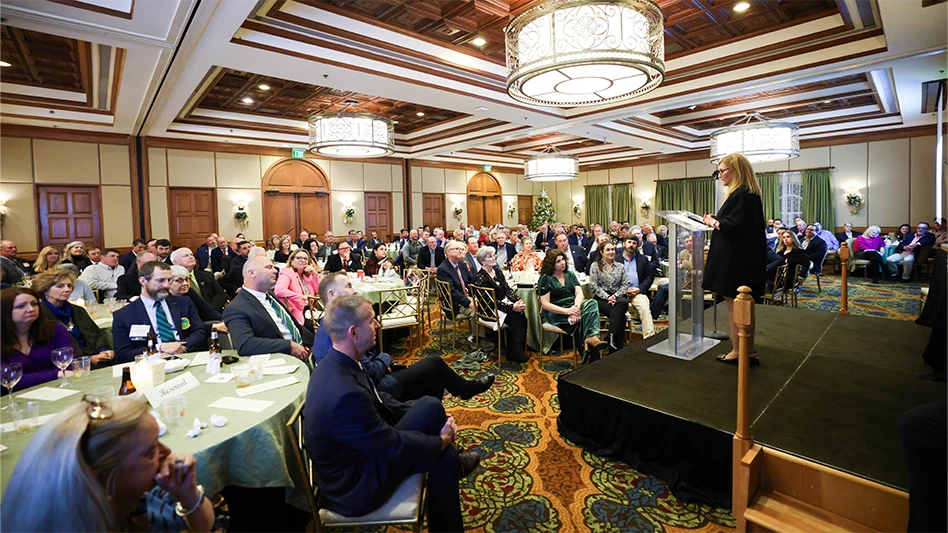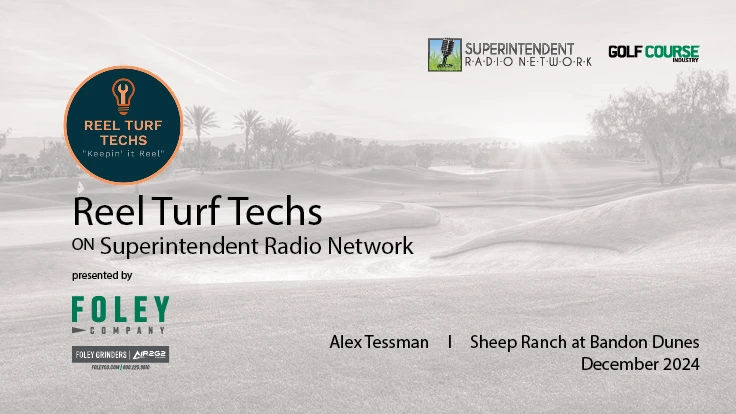It’s been 20 years since I stumbled – completely by accident – into this wacky industry. I’m now on my third career in the business but, except for a brief hiatus in the mid-1990s, I’ve been writing, talking and thinking about the golf course maintenance industry for two solid decades.
And they pay me for that. Go figure.
Much has changed since 1987. The business has gone high-tech. Back then, it wasn’t unheard of to try to contact a superintendent only to find he didn’t have a phone in the “barn.” Now, 80 percent of you use e-mail daily, and I’d be shocked to find one of you who still doesn’t have a mobile phone or a Blackberry-type thingy.
The night waterman has gone the way of the dodo. Incredibly sophisticated, multimillion-dollar irrigation systems are run by tiny hand-held computers. The software programs that run these things are more sophisticated than what NASA used to launch the first space shuttle.
Old chemistry went bye-bye and has been replaced by low-dosage, eco-friendly alternatives. Mercury, cadmium, arsenicals, chlordane and other nasties are history. The new stuff is more expensive but more benign and in many cases more effective.
Superintendents – believe it or not – have made dramatic gains in terms of recognition and respect. Years ago, it was cause for celebration every time one of you received any public acknowledgement. It’s now almost routine for golf’s leaders, Tour players and others in the limelight to state publicly that the superintendent is the key employee at any facility.
Those are the facts of the past two decades, but my message this month is about the truths I think I’ve uncovered along this long, green path we’ve traveled together for 20 years. They are:
1. Golf course maintenance is a vast, $9-billion community, yet we act more like Mayberry R.F.D. than Manhattan NYC. This business is essentially a small town where everyone knows everyone else. There are few secrets, and people tend to stick around.
Most of all, despite some erosion the past few years, we largely still share a set of common values based on helping neighbors, treating each other fairly and maintaining an old-fashioned commitment to ethics. In an increasingly cut-throat world, that’s something to treasure.
2. Nice guys and gals often do finish first. In other businesses, it seems the further you go up the ladder, the more jerks you’ll find clinging to each rung. In golf, it’s unusual to meet anyone who’s nasty, negative or dishonest at any level, but it’s exceedingly rare to find someone at the upper reaches of the business who isn’t a pretty good person at heart.
In short, we don’t just reward individuals for their ability to grow grass. We also value good people.
3. Superintendents’ collective inferiority complex is shrinking slowly. Call it the “Caddyshack Syndrome” or whatever you like, but the notion that superintendents don’t get the credit they deserve is beginning to lose credence.
This is something in which the GCSAA should take justifiable pride. I’m not sure any of its public relations campaigns have had that much impact, but by lobbying internally within the larger golf community (the USGA, PGA Tour, PGA of America, etc.), the association has made it a standard to give props to the superintendent. That, for once, is a good kind of political correctness.
4. We evolve quickly and successfully. Despite being old fashioned in other ways, we have a pretty good track record of adapting to change. And I don’t just mean technological advances. Cultural practices also have changed rapidly. Just look at how we view soils and aerification now compared the 1980s and you’ll know what I mean.
Also consider how quickly we came to grips with environmental issues – real and perceived – and made genuine progress in promoting ourselves as nature friendly.
Our ability to evolve, survive and thrive is a direct result of our interconnectedness and our willingness to help others. It’s a nice side benefit of living in that small town I mentioned earlier.
5. This is a genuinely good business. I keep coming back to this idea that our industry reflects our sport. Practice, education, creativity, honesty and fair play are fundamental to success. Gentlemanliness (and “gentlewomanliness,” I guess) is the prevailing spirit. We compete, but we also root for each other to succeed.
Lastly, we tend to worry when those values are eroded by ethical questions, business pressures, conflicts of interest, etc. The fact that we fret about these things is a sign that we care deeply about them when other industries simply don’t.
Albert Einstein once said, “Whoever undertakes to set himself up as a judge of truth … is shipwrecked by the laughter of the gods.” He was a fairly smart guy, so I’ll freely admit that I don’t have a monopoly on the subject and invite you to send us your truths – good, bad or ugly – about the state of the profession today.
In the meantime, I hope you’ll consider yourself as lucky as I do to be living in a cozy little town where the neighbors are involved, concerned, friendly and always willing to help. When you get right down to it, Mayberry is a pretty cool place to be. GCI
Pat Jones is president of Flagstick LLC, a consulting firm that provides sales and marketing intelligence to green-industry businesses. He can be reached at psjhawk@cox.net or 440-478-4763.

Explore the May 2007 Issue
Check out more from this issue and find your next story to read.
Latest from Golf Course Industry
- Advanced Turf Solutions and The Aquatrols Company release soil surfactant
- Heritage Golf Group acquires North Carolina courses
- Editor’s notebook: Green Start Academy 2024
- USGA focuses on inclusion, sustainability in 2024
- Greens with Envy 65: Carolina on our mind
- Five Iron Golf expands into Minnesota
- Global sports group 54 invests in Turfgrass
- Hawaii's Mauna Kea Golf Course announces reopening





